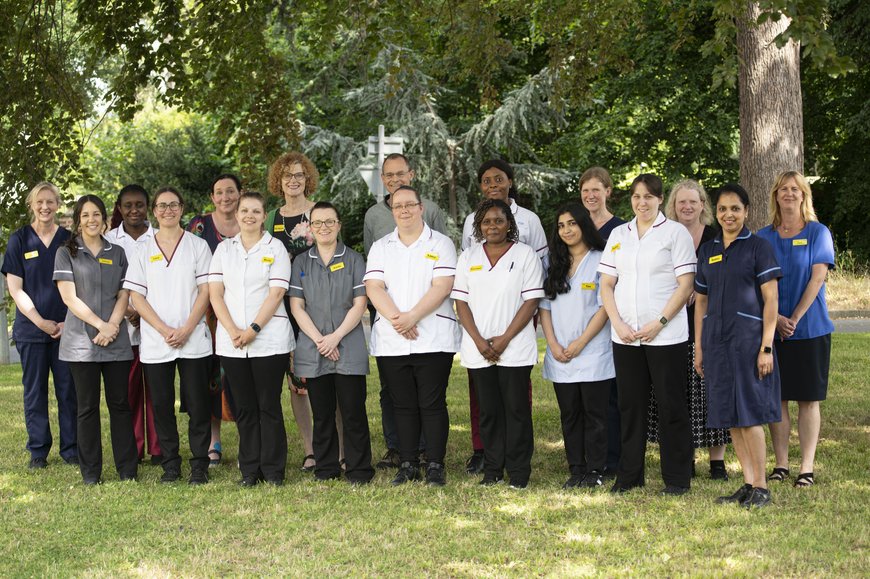The BRAID study
The purpose of the BRAID trial is to determine whether additional imaging with one of several types of scans is helpful in the early detection of breast cancer.
The early detection of breast cancer in women with dense breast tissue on their screening mammograms, in whom the sensitivity of screening mammography can be as low as 40% because of obscuration of cancers by dense breast tissue.
Three different imaging techniques are being tested in this trial and the results will compare breast cancer detection between women who receive the standard of care (3 yearly mammograms) with those who receive the standard of care plus two additional scans in between NHS breast screening rounds. The three Imaging techniques being tested within the trial are: Automated Whole Breast Ultrasound (ABUS), Contrast Enhanced Mammography (CEM) and Abbreviated Breast Magnetic Resonance Imaging (ABB-MRI).
Women who voluntarily participated in the trial at GHNHSFT were randomised to either CEM, ABB-MRI or no supplementary imaging (standard of care). If randomised to CEM or ABB-MRI, the first additional scan was completed within 6 months of the screening mammogram and a second additional scan was completed 12-18 months after their baseline screening mammogram for those women participating more than a year before the close of the recruitment. The results of these supplemental scans will be compared with each other and with mammography alone to see which techniques (if any) increase the cancer detection rate without an excessive number of false positive scans. Information collected as part of this trial may benefit women with dense breasts in the future by informing us on how best to screen them for breast cancer.
The BRAID trial initially planned to recruit 12,000 participants with dense breasts identified on their screening mammograms from several hospitals across the UK, but the COVID-19 pandemic meant that the target had to be reduced to 9,000. Gloucestershire Hospitals NHS Foundation Trust exceeded its target with a total of 1361 patients taking part in the trial.
This was a huge team effort involving the mammographers, the screening office staff, the mammogram readers and the MRI team from Cobalt, as well as the research team.
We are grateful to the 1361 local women who took part for their contribution to this important study.
We received many comments from participants through our routine participant feedback survey, who were positive about their experience of taking part in research and appreciative of the excellent care they received:
‘If it wasn't for this study, I would not have known I have advanced breast cancer until it was too late to save my life. I will always be grateful!’
‘The information provided pre-appointment gave me the detail I needed. The staff both those organising the appointments and at the hospital were fantastic, helpful + friendly.’
‘All correspondence from the BRAID trial team was very polite and courteous, and I was made to feel that my involvement in the trial was a real help and they were very grateful for my participation.’
